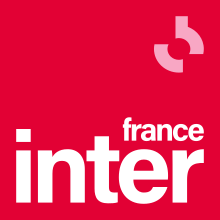This article has multiple issues. Please help
improve it or discuss these issues on the
talk page. (
Learn how and when to remove these template messages)
This article needs additional citations for
verification. Please help
improve this article by
adding citations to reliable sources. Unsourced material may be challenged and removed.Find sources:
"France Inter" –
news ·
newspapers ·
books ·
scholar ·
JSTOR (April 2009) (
Learn how and when to remove this message)
.mw-parser-output .hidden-begin{box-sizing:border-box;width:100%;padding:5px;border:none;font-size:95%}.mw-parser-output .hidden-title{font-weight:bold;line-height:1.6;text-align:left}.mw-parser-output .hidden-content{text-align:left}@media all and (max-width:500px){.mw-parser-output .hidden-begin{width:auto!important;clear:none!important;float:none!important))You can help expand this article with text translated from
the corresponding article in French. (November 2022) Click [show] for important translation instructions.
View a machine-translated version of the French article.
Machine translation, like
DeepL or
Google Translate, is a useful starting point for translations, but translators must revise errors as necessary and confirm that the translation is accurate, rather than simply copy-pasting machine-translated text into the English Wikipedia.
Consider
adding a topic to this template: there are already 6,196 articles in the
main category, and specifying|topic= will aid in categorization.
Do not translate text that appears unreliable or low-quality. If possible, verify the text with references provided in the foreign-language article.
You must provide
copyright attribution in the
edit summary accompanying your translation by providing an
interlanguage link to the source of your translation. A model attribution edit summary is Content in this edit is translated from the existing French Wikipedia article at [[:fr:France Inter]]; see its history for attribution.
You may also add the template ((Translated|fr|France Inter)) to the
talk page.
For more guidance, see
Wikipedia:Translation.
(
Learn how and when to remove this message)
French public radio channel
France Inter (French pronunciation: [fʁɑ̃s ɛ̃tɛʁ]) is a major French public radio channel and part of Radio France. It is a "generalist" station, aiming to provide a wide national audience with a full service of news and spoken-word programming, both serious and entertaining, liberally punctuated with an eclectic mix of music. It is broadcast on FM from a nationwide network of transmitters, as well as via the internet.
The channel announced during 2016 that it would discontinue transmissions from the Allouis longwave transmitter on 162 kHz with effect from 1 January 2017, thereby saving approximately €6 million per year. Transmission from Allouis of the atomic-clock-generated time signal (ALS162) would, however, continue after this date as the signal is critical for over 200,000 devices deployed within French enterprises and state entities, such as French Railways (SNCF), the electricity distributor ENEDIS, airports, hospitals, municipalities, etc.[1]
History
France Inter was founded as part of the reorganization of state broadcasting which followed the end of World War II as "Paris-Inter" and charged with being French public radio's generalist (i.e. "full-service") service. The channel was renamed "France I" in 1958, although three years later one of France's most popular radio and television listings magazines was still showing the station's programmes under the heading "Paris-Inter" with "France I" as a subtitle.[2] In October 1963 the France I and France II networks were merged to form "RTF Inter", renamed "France Inter" with effect from 8 December.
The major challenge faced by France Inter at the time of its reorganization in the 1960s was the success of private "peripheral stations" (in particular, RTL and Europe 1, broadcasting from powerful transmitters outside France) in capturing the majority of the French radio audience since the war. They had done so by adopting a modern broadcasting style and earning a reputation for greater freedom from government influence.
As well as rapidly modernizing its style to match its competitors, France Inter stressed its freedom from commercial pressures – although it does carry a limited amount of paid-for advertising – and especially presented itself as intelligent radio accessible to a general audience under the slogan Écoutez la différence ("Listen to the difference").
Programmes
France Inter programmes, a number of which have been important milestones in the history of French radio, include:
- Le Masque et la Plume, arts reviews from journalist critics (on air since 13/11/1955)
- Le Jeu des 1000 euros, a general-knowledge quiz programme (since 19/4/1958)
- La marche de l'histoire, formerly Deux mille ans d'histoire, an in-depth daily documentary on a specific historical subject (since 1999)
- Pop Club (1965–2005, i.e. 40 years with the same presenter José Artur)
- Le téléphone sonne, a current affairs discussion and phone-in programme (since 1978)
- Là-bas si j'y suis, a reports programme (1989–2014)
- Le sept neuf, formerly Inter Matin, morning news sequence (since 1982)
- classique avec Dessay, formerly Carrefour De Lodéon, classical music programme (since 1992)
- Les Cinglés du music-hall, prewar jazz and popular music presented by Jean-Christophe Averty for 28 years until 2006
